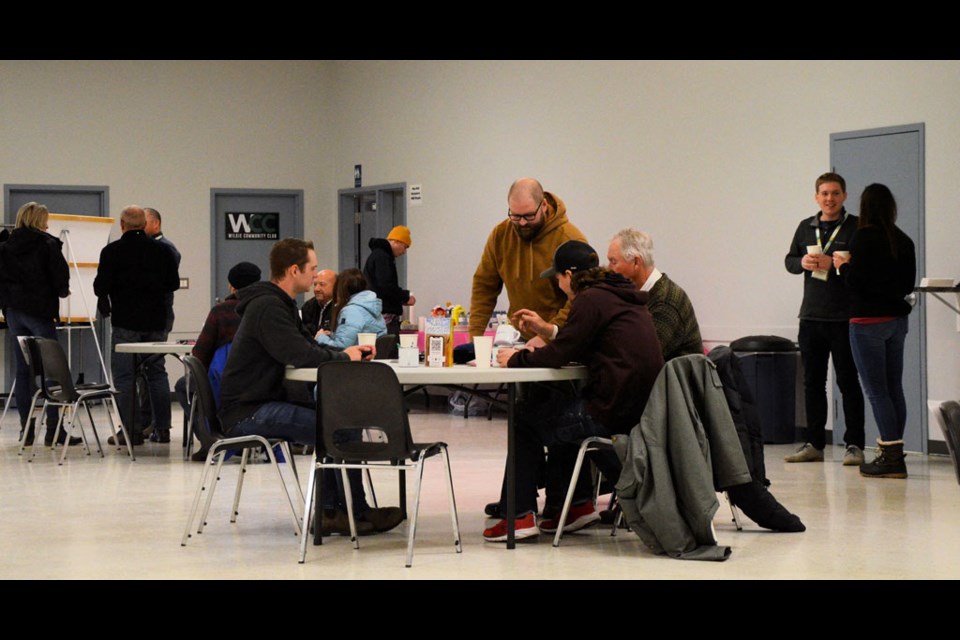WILKIE — Sask Wheat Development Commission has been hosting a number of informal educational events for producers throughout the province. One of these “coffee shop talks” was held in Wilkie, Jan. 16, with over 10 industry experts attending, along with a number of local area farmers. Some farmers who had registered were unable to attend due to the -40C temperatures.
With the informal nature of the event, there were no planned presentations. Instead, farmers picked up their coffee and snacks, chose a table to sit at and waited for an expert to come to them. The experts spent 15 minutes at each table, giving updates and answering questions.
The specialists included Dr. James Tansey and Quinton Cubbon from the Saskatchewan Ministry of Agriculture, specialists in pest management and crops extension respectively; Dr. Adam Carter and Dr. Steve Shirtliffe from the University of Saskatchewan, experts in spring wheat breeding/genetics and weed science respectively; Kayla Slind, acting general manager at Western Applied Research Corporation; Carmen Prang, Sask Wheat, agronomy extension specialist; and representatives from Parrish & Heimbecker, Syngenta, Nutrien and various seed companies.
As an example of discussions at the tables: Cubbon mentioned the important of thinking about the overall environment when making a decision about seed treatment. If the year will be hot and dry, the increase in yield might only be one bushel an acre. Would that be a sufficient return on investment?
At another table, a seed company rep discussed various seed types and why the seed companies will mix in some other seed into a midge-resistant variety. The ratio is about 10 per cent and allows the midge a place to feed, a refuge that is not midge-resistant, with the goal of preventing adaption to resistant varieties. If a farmer is saving their own seed, it’s important to realize that, over time, there will be less and less refuge seed with each harvest.
In a post-event interview, Slind said she and Prang went to the tables together, and spoke about extending recent plot trials to the field level. Popular topics included seeding rates, fungicide application, foliar applied nitrogen fixation product and enhanced efficiency fertilizers.
With only 15 minutes at a table, sometimes conversations were cut short or questions missed. Following all 15-minute rounds, everyone was invited to replenish their coffee and/or snacks and the specialists engaged in further discussions with those interested.
Wilkie area farmer Andrew Herle found the morning time well-spent. Although he had heard many of the experts give presentations at other events, he welcomed the one-on-one time. He added more producers attending might have led to more back-and-forth discussion, which he would also have appreciated.
Slind’s response to a question about whether she found the event worthwhile, was “Absolutely. It was a really great chance for producers and industry experts from all over the province to just sit down and chat.”
Montana Getty, communications and events co-ordinator for Sask Wheat, said the best part of hosting the coffee shop talks was “the connections, relationships and friendships made while continuing to learn about the industry.” Getty’s next stop with the travelling tour would be in Prince Albert, Feb. 1.




